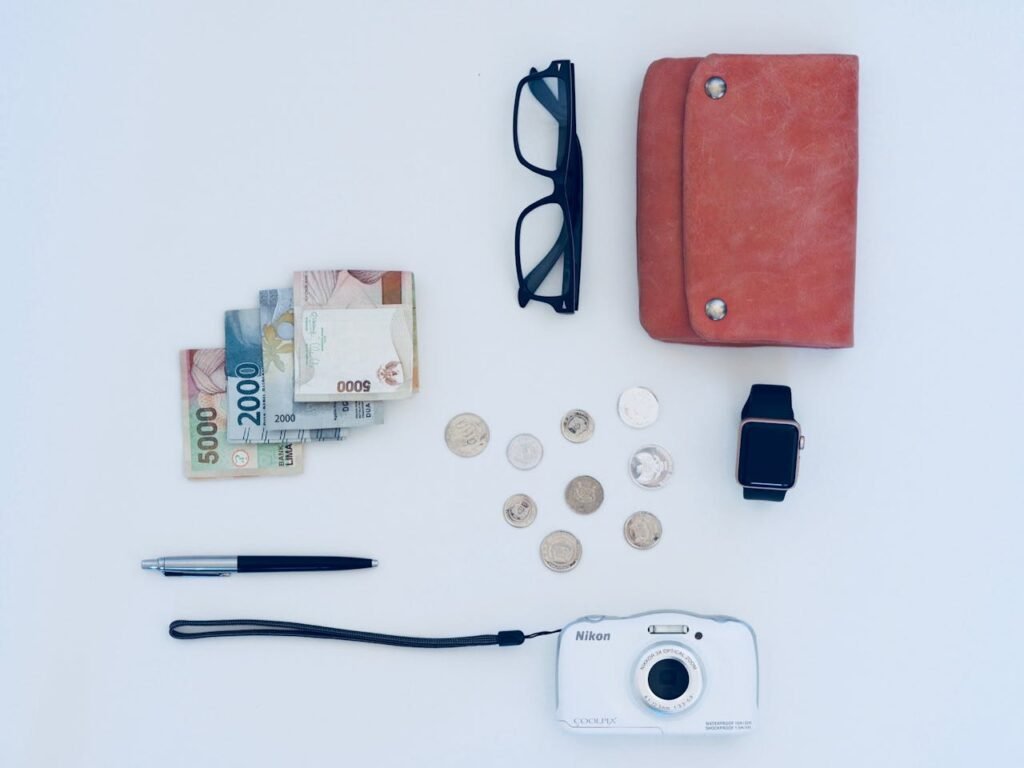
“Traveling is too expensive,” “I can’t afford to explore the world,” or “I’ll wait until I have more savings.” Sound familiar? These are common concerns that stop many aspiring travelers from taking their first step. However, budget travel isn’t about cutting corners or sacrificing experiences—it’s about making informed choices and finding value in every dollar you spend. Whether you’re heading to a bustling city or a serene countryside, these 8 proven tips will guide you through traveling smartly, ensuring that your first adventure is both affordable and unforgettable.
Embarking on your first travel adventure is exhilarating, but for many, the financial aspect can feel daunting. However, traveling on a budget doesn’t mean sacrificing comfort or memorable experiences. With the right strategies, you can explore the world without draining your bank account. Let’s dive deep into eight proven tips to help first-time travelers manage their budget while still having an unforgettable journey.
1. Plan Ahead but Stay Flexible
The Power of Early Planning
The foundation of budget travel lies in early planning. Flights, accommodation, and major attractions are often cheaper when booked in advance. For example, airlines usually release their cheapest seats 3-6 months before departure. Tools like Google Flights, Skyscanner, and Hopper can track fare changes, alerting you when prices drop. Similarly, early accommodation bookings through sites like Booking.com or Airbnb often come with discounts.
However, flexibility is key to snagging the best deals. Instead of rigidly sticking to a specific date or destination, consider alternatives. Traveling mid-week or in the off-season can save hundreds. Destinations popular in summer often have reduced prices in spring or fall, offering the same beauty without the crowds or premium costs.
Pro Tip: Look for “error fares” or last-minute deals for spontaneous travel adventures. Websites like Secret Flying or Scott’s Cheap Flights specialize in finding these.
2. Set a Daily Spending Limit for Budget Travel
Why Budgeting Matters

Without a clear spending plan, it’s easy to overspend, especially in unfamiliar environments. Start by researching the average costs of meals, transportation, and attractions in your destination. Create a daily budget, dividing your expenses into categories: food, transport, sightseeing, and miscellaneous.
Use budgeting apps like Trail Wallet or TravelSpend to track expenses in real-time. These apps allow you to set a daily or trip-wide budget, sending alerts when you’re nearing your limit. This method ensures that your funds last the entire trip, reducing financial stress.
How to Adjust on the Fly
Some days, you might splurge on a big-ticket item, like a guided tour or fancy dinner. Balance these days by eating cheaper meals or engaging in free activities the following day. Flexibility within your budget helps you enjoy both luxury moments and budget-conscious days.
3. Leverage the Sharing Economy
The sharing economy has revolutionized travel, offering affordable alternatives to traditional services. These platforms connect travelers with locals, reducing costs while providing more authentic experiences.
- Accommodation: Sites like Airbnb and Couchsurfing allow you to stay in local homes for a fraction of hotel prices. Couchsurfing is even free, though it’s courteous to bring a small gift or contribute to meals.
- Transport: BlaBlaCar and carpooling services help you share rides, splitting fuel costs and reducing your carbon footprint.
- Dining: Platforms like EatWith and BonAppetour connect travelers with local hosts for home-cooked meals, providing cultural immersion and budget-friendly dining.
Pro Tip: Always check reviews and verify hosts to ensure safety and quality.

The Complete Keto Lifestyle: Step-by-Step Instructions, Delicious Recipes, and Proven Techniques for Success is your essential guide to mastering the ketogenic diet. This comprehensive ebook offers everything you need to thrive on keto, from easy meal plans and delicious recipes to expert tips for long-term success. Whether you’re new to keto or looking to deepen your knowledge, this book simplifies every step, empowering you to reach your health and weight loss goals with confidence and ease. Start your keto journey today and enjoy a healthier, more vibrant lifestyle!
4. Use Public Transportation
Taxis and private ride shares can quickly drain your budget. Instead, opt for public transportation, which is often a fraction of the cost and offers a more authentic experience.
- Multi-day transit passes: Cities like London, Paris, and Tokyo offer discounted multi-day transit passes, providing unlimited rides on buses, trains, and subways.
- Local bikes or e-scooters: Many cities have bike or e-scooter rental systems, offering an affordable, eco-friendly way to explore.
Before traveling, download apps like Citymapper or Moovit, which provide real-time public transit updates and route planning.
5. Book Accommodations Wisely
Finding Affordable Options
Accommodations can be one of the most significant expenses. Luckily, there are numerous ways to find budget-friendly places to stay without compromising comfort or safety:
- Hostels: Ideal for solo travelers or those seeking a social atmosphere. Websites like Hostelworld list affordable dorm and private room options.
- Budget Hotels: Chains like Ibis, Travelodge, and Premier Inn offer clean, comfortable rooms at reasonable rates.
- Long-term Rentals: For longer stays, renting an apartment through platforms like Vrbo or local real estate websites can be more cost-effective than daily rentals.
Tips for Lower Rates
Consider contacting accommodations directly to negotiate better rates, especially for longer stays. Many small, family-run establishments appreciate direct bookings, avoiding third-party fees.
6. Eat Like a Local
Exploring local cuisine is one of the most enjoyable aspects of traveling. Not only does it allow you to immerse yourself in the culture, but it’s also a fantastic way to save money. Instead of opting for expensive tourist restaurants, venture into local neighborhoods to find hidden culinary gems.
- Street Food Adventures: In many countries, such as Thailand, Mexico, or Vietnam, street food is not just affordable but a core part of the culture. From fragrant noodles to sizzling tacos, these dishes are prepared fresh and cost a fraction of restaurant prices.
Local Markets: Markets are treasure troves of fresh produce, baked goods, and regional specialties. Grab some cheese, bread, and fruit for a picnic, or stock up on ingredients for self-catering if your accommodation has a kitchen.
Cooking Your Own Meals: If you’re staying in a rental or hostel with kitchen facilities, consider cooking a few meals. Grocery shopping in a new country can be an adventure, offering insight into local life.
Ask the Locals: Strike up a conversation with locals to discover where they dine. These recommendations often lead to authentic, budget-friendly experiences that aren’t in guidebooks. - Pro Tip: Avoid eateries with menus in multiple languages near tourist attractions; these are usually overpriced. Look for places bustling with locals instead.
Ask locals for their favorite spots. Hidden gems often have the best food at the best prices.
7. Take Advantage of Free Activities
raveling doesn’t have to mean paying for every experience. Many destinations offer an array of free or low-cost activities that provide deep cultural and historical insights.
- Walking Tours: Free walking tours are available in most major cities, led by knowledgeable guides who work for tips. These tours are perfect for getting acquainted with the area and learning interesting anecdotes.
- Museums and Galleries: Check if the local museums offer free entry on specific days or at certain times. Even paid attractions often have discounted or complimentary access for students, seniors, or families.
- Nature and Public Spaces: Parks, beaches, hiking trails, and outdoor festivals provide endless entertainment without costing a dime. Pack a picnic and enjoy people-watching, local music, or seasonal events.
- Community Events: Local calendars often feature free cultural events, performances, or markets. These are excellent opportunities to mingle with residents and experience authentic traditions.
Websites like Visit a City or local tourism boards often list free or low-cost events happening during your stay.
8. Purchase Travel Insurance
Travel insurance might feel like an optional expense, especially if you’re traveling on a budget. However, it is one of the most crucial investments you can make for peace of mind and financial security during your trip. It acts as a safety net, protecting you against unforeseen events that could otherwise disrupt your plans or lead to significant costs.
Why Travel Insurance Is Important
Unexpected incidents can occur even in the most meticulously planned trips. From falling ill abroad to sudden flight cancellations, travel insurance ensures you’re covered in situations like:
- Medical Emergencies: Healthcare abroad can be expensive, and many countries require upfront payment for treatment. Travel insurance can cover costs for doctor visits, hospital stays, or even emergency evacuations.
- Trip Interruptions or Cancellations: Weather disruptions, personal emergencies, or airline strikes could force you to cancel or delay your trip. Insurance reimburses non-refundable costs such as flight tickets or hotel bookings.
- Lost or Delayed Luggage: If your bags go missing or arrive late, insurance can compensate for essentials like clothing or toiletries until your luggage is returned.
- Accidents or Liability: Some policies cover accidents, including damages or injuries caused to others, giving you extra protection.
How to Choose the Right Travel Insurance
Not all policies are created equal. Choosing the right one involves understanding your specific needs and trip details. Here’s how to make an informed decision:
- 1. Evaluate Your Coverage Needs:
Medical Coverage: Ensure the policy covers medical emergencies, including evacuation and repatriation.
Trip Cancellation/Interruption: Check if it reimburses pre-paid bookings for reasons like illness or travel bans.
Baggage Protection: Confirm coverage for lost, stolen, or damaged belongings.
Adventure Activities: If you’re planning adventurous activities like trekking or scuba diving, ensure your policy includes these.
2. Compare Providers:Reputable insurers like World Nomads, Allianz, or SafetyWing offer comprehensive packages tailored for travelers. Compare their plans based on cost, coverage, and customer reviews.
3. Check for Exclusions: Carefully read the fine print to understand what isn’t covered. For example, some policies exclude pre-existing medical conditions or high-risk activities.
4. Leverage Credit Card Benefits: Many premium credit cards provide complimentary travel insurance if you use them to book your trip. However, these benefits might be limited, so assess whether you need additional coverage. - Tips for Using Travel Insurance
1. Carry Your Policy Details: Keep a printed copy and a digital version of your policy along with emergency contact numbers.
2. Know How to Claim: Familiarize yourself with the claims process. Some insurers require specific documentation, such as receipts, medical reports, or police reports, so it’s good to be prepared.
3. Tailor Your Policy: Depending on your destination, adjust your coverage. For instance, traveling to a country with high healthcare costs may warrant a higher medical coverage limit.
Pro Tip:
Even on short trips, travel insurance is worth the investment. The cost of coverage is minimal compared to the expenses of unexpected medical emergencies or cancellations. Treat it as a small price for peace of mind during your adventure.
By securing travel insurance, you ensure that no matter what surprises arise, your journey remains as stress-free and enjoyable as possible.
Conclusion
Traveling for the first time can feel overwhelming, especially when you’re mindful of your budget. However, with thoughtful planning, strategic choices, and a little flexibility, you can embark on an adventure that’s both affordable and memorable. From snagging early deals on flights and accommodations to savoring local cuisines and exploring free activities, budget travel is about embracing experiences rather than splurging on unnecessary luxuries.
Remember, the essence of travel lies in discovering new places, cultures, and perspectives. Whether you’re wandering through bustling city streets, hiking serene trails, or enjoying a quiet meal at a local market, every moment adds to your journey. By applying the tips outlined in this guide, you can confidently plan your first trip without worrying about financial strain.
So, take that first step, embrace the unexpected, and let the world unfold before you. Safe travels and happy adventures! 🌍✨

